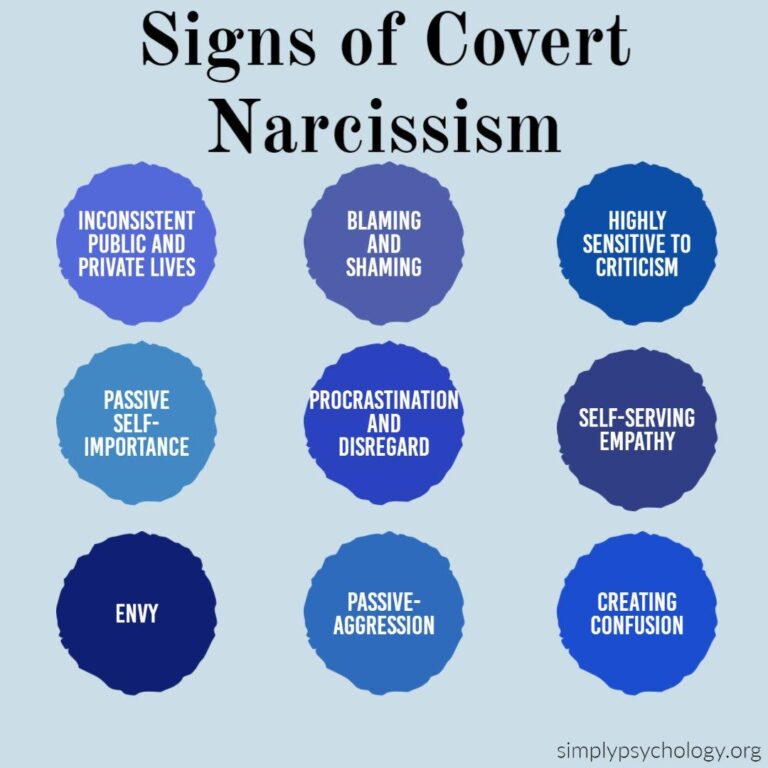Have you ever met someone who seems charming and generous on the surface but leaves you feeling a bit confused or drained afterward? Sometimes, kindness isn’t as straightforward as it appears. Welcome to the fascinating world of covert narcissism—a subtle and often overlooked form of narcissism where kindness can actually be a mask. In this post, we’ll explore what happens when kindness hides, how covert narcissism works, and why understanding this quiet, complex personality trait can help us navigate relationships with a little more clarity and compassion. Let’s dive in!
Table of Contents
- Signs to Look For When Kindness Feels Too Good to Be True
- The Psychology Behind Covert Narcissism and Its Hidden Motives
- How to Protect Yourself Without Losing Compassion
- Practical Strategies for Communicating with a Covert Narcissist
- In Conclusion
Signs to Look For When Kindness Feels Too Good to Be True
When kindness comes wrapped in subtle manipulation, it often feels disorienting—like a puzzle missing a piece. The gestures are warm but somehow leave you feeling drained or unsure. Watch for moments when their generosity seems conditionally awarded, only surfacing when it serves their agenda. They may shower you with compliments one day, then withdraw affection the next, leaving you wondering if you’ve done something wrong. This emotional push and pull is a hallmark of covert narcissism, where kindness is less about genuine care and more about control.
Another sign is an overly intense focus on your response. If they constantly monitor how you react to their kindness and use your reactions to guilt or manipulate, that’s a red flag. Their words may be sugar-coated, but underneath lies an expectation that you’ll mirror their emotions perfectly, validating their self-worth. Common behaviors include:
- Unexpected mood swings tied to your appreciation or lack thereof
- Using favors or help as leverage in disagreements
- Feigning vulnerability to elicit sympathy and deepen your emotional investment
- Deflecting responsibility by framing themselves as the “kind victim”
Recognizing these subtle cues empowers you to protect your heart while navigating relationships that masquerade as kind but are anything but.
The Psychology Behind Covert Narcissism and Its Hidden Motives
At first glance, those with covert narcissism may appear gentle, humble, and even self-effacing. Yet beneath this exterior lies a complex web of hidden motives driven by an intense need for validation and control. Unlike their overt counterparts who openly seek admiration, covert narcissists employ subtle tactics to secure attention, often cloaked in acts of kindness or vulnerability. This psychological dance is rooted in deep-seated insecurities, leading them to manipulate emotions indirectly rather than through grandiosity or overt boasting.
Common psychological traits include:
- Sensitive defensiveness: Easily wounded by criticism, yet often unwilling to openly confront it.
- Passive-aggressive tendencies: Using silence, sarcasm, or guilt to influence others subtly.
- Internalized self-importance: Holding a secret belief in their superiority, concealed beneath false modesty.
This intricate mask of apparent kindness serves not only to garner sympathy but also to maintain control in relationships, making covert narcissism a stealthy and often misunderstood form of self-centeredness.
How to Protect Yourself Without Losing Compassion
Learning to safeguard your emotional well-being while still embracing kindness requires a delicate balance. It starts with setting clear boundaries that honor your needs without alienating others. Remember, protecting yourself doesn’t mean building walls; it means creating healthy limits where your empathy remains intact but your energy isn’t drained. Practicing mindful communication can help you express your feelings honestly and assertively, ensuring that your kindness does not pave the way for manipulation or emotional exploitation.
Consider incorporating these gentle yet firm strategies into your interactions:
- Reflect before reacting: Pause and assess whether a situation is draining or nurturing you.
- Prioritize self-care: Regularly check in with yourself to gauge your emotional state and recharge as needed.
- Learn to say no: Saying no respectfully is a vital skill that protects your boundaries without diminishing your compassion.
- Focus on empathy, not approval: You can understand someone’s feelings without feeling obligated to fix or absorb them.
By nurturing your inner resilience, you allow your kindness to shine without it becoming a disguise for vulnerability. This approach ensures your compassionate nature remains a strength, not a weakness, in navigating relationships with covert narcissists and beyond.
Practical Strategies for Communicating with a Covert Narcissist
Interacting with someone who exhibits covert narcissistic traits requires a delicate balance of empathy and firm boundary-setting. One of the most effective approaches is to validate their feelings without reinforcing their self-centered narrative. Use neutral language that acknowledges their emotions, such as “I see this is important to you,” without feeding into potential manipulations. This strategy helps to diffuse tension and keeps communication open, steering clear of direct confrontations that often escalate into subtle emotional battles.
Additionally, maintaining clarity about your own limits is crucial. Covert narcissists often test boundaries through passive-aggressive comments or guilt-tripping tactics. To counter this, adopt a consistent approach that includes:
- Clear, concise responses that avoid ambiguity
- Regularly reinforcing your boundaries in a calm, assertive tone
- Documenting interactions if needed, to track patterns
By practicing these strategies, you protect your emotional wellbeing while navigating the complex dynamics that come with covert narcissism.
In Conclusion
Thanks for sticking with me through this deep dive into the world of covert narcissism. It’s a tricky territory where kindness and self-interest often intertwine, making it hard to see what’s really going on beneath the surface. By understanding these hidden dynamics, we can better protect our well-being and build healthier relationships. Remember, true kindness shines through with genuine empathy and care, not just a mask. So, whether you’re navigating your own experiences or supporting someone else, keep your heart open but your eyes wide. Here’s to kindness that’s real—and to spotting when it’s hiding in plain sight!

